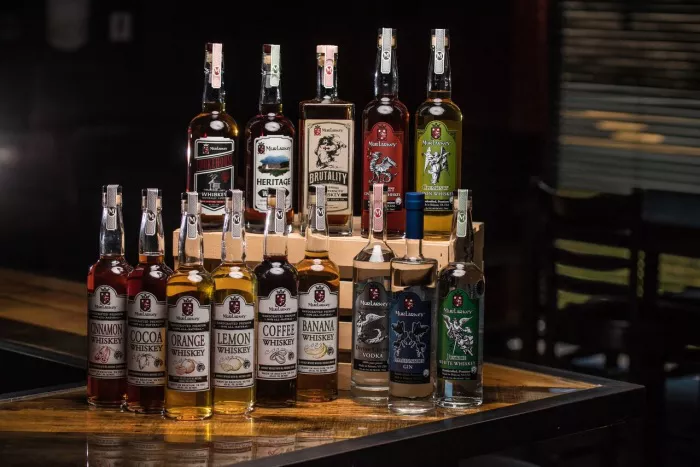Malt liquor and spirits are both popular alcoholic beverages, but there is often confusion about whether malt liquor should be categorized as a spirit. In this article, we will delve into the characteristics, production methods, and legal definitions of malt liquor and spirits to determine whether malt liquor can truly be considered a spirit. By examining the key components and processes involved, we aim to debunk the myths and unravel the truth surrounding this topic.
Defining Malt Liquor and Spirits
To understand whether malt liquor qualifies as a spirit, it is crucial to establish clear definitions for both beverages. Malt liquor is a type of beer that typically has a higher alcohol content than regular beer, usually ranging from 6% to 8% ABV (alcohol by volume), though it can sometimes go as high as 12% ABV. On the other hand, spirits, also known as distilled spirits or hard liquor, are alcoholic beverages produced through distillation, resulting in a higher alcohol concentration.
The Distillation Process and Spirits
Distilled spirits are created through a process known as distillation. This involves heating a fermented liquid, such as grain, fruit, or molasses, to create vapor. The vapor is then collected, condensed, and further purified to obtain a liquid with a higher alcohol content. The process of distillation effectively separates the alcohol from other components, resulting in a more concentrated and potent beverage.
Malt Liquor Production: Brewing vs. Distillation
Malt liquor, unlike spirits, does not undergo the distillation process. Instead, it is produced through brewing, which involves fermenting malted grains, such as barley, along with water and yeast. The fermentation process converts the sugars in the grains into alcohol, resulting in beer. Malt liquor is often brewed using adjunct grains, such as corn or rice, which contribute to its higher alcohol content and distinct flavor profile.
Legal Classification and Definitions
To determine whether malt liquor can be considered a spirit, it is essential to examine the legal classifications and definitions provided by regulatory bodies. The legal definition of spirits varies from country to country, but in general, spirits are recognized as alcoholic beverages with a higher alcohol content that are produced through distillation.
In the United States, the Alcohol and Tobacco Tax and Trade Bureau (TTB) defines spirits as “distilled spirits, ethyl alcohol, or ethanol produced from any source at or above 40% alcohol by volume (ABV).” According to this definition, malt liquor does not meet the criteria to be classified as a spirit because it is not produced through distillation and typically has an ABV lower than 40%.
Characteristics of Malt Liquor
Malt liquor has distinct characteristics that differentiate it from spirits. Firstly, it is brewed using malted grains, which imparts a grainy and malty flavor profile. Additionally, malt liquor often has a higher carbonation level compared to spirits, resulting in a more effervescent and refreshing drinking experience. Its higher alcohol content contributes to a stronger and more pronounced flavor profile, making it a popular choice for those seeking a robust and full-bodied beverage.
Legal Classification of Malt Liquor
While malt liquor is not classified as a spirit according to the TTB’s definition, it is important to note that the legal classification of alcoholic beverages can vary between jurisdictions. Some countries may categorize malt liquor differently or have specific regulations in place governing its production and sale. It is always advisable to consult the local regulations and definitions to understand how malt liquor is classified in a particular region.
Misconceptions and Myths
The confusion surrounding whether malt liquor is a spirit often stems from misconceptions and myths propagated by popular culture or personal beliefs. One common misconception is that any alcoholic beverage with a higher alcohol content should be classified as a spirit. However, as we have established, the legal definition of spirits revolves around the process of distillation, which malt liquor does not undergo.
Marketing and Perception
The marketing and packaging of malt liquor can also contribute to the misconception that it is a spirit. Some malt liquor brands may use packaging and branding strategies that resemble those of spirits, such as using sleek and sophisticated bottle designs or employing terms commonly associated with spirits, like “premium” or “handcrafted.” This can create confusion among consumers who may associate these visual cues with spirits.
Conclusion
In conclusion, malt liquor is not considered a spirit based on the legal definitions and classifications provided by regulatory bodies. While it shares certain characteristics with spirits, such as a higher alcohol content, malt liquor is brewed rather than distilled. The process of distillation is a defining factor in the production of spirits, and without it, malt liquor cannot be classified as a spirit. It is crucial to understand the distinctions between these beverages to make informed decisions and appreciate their unique qualities.


